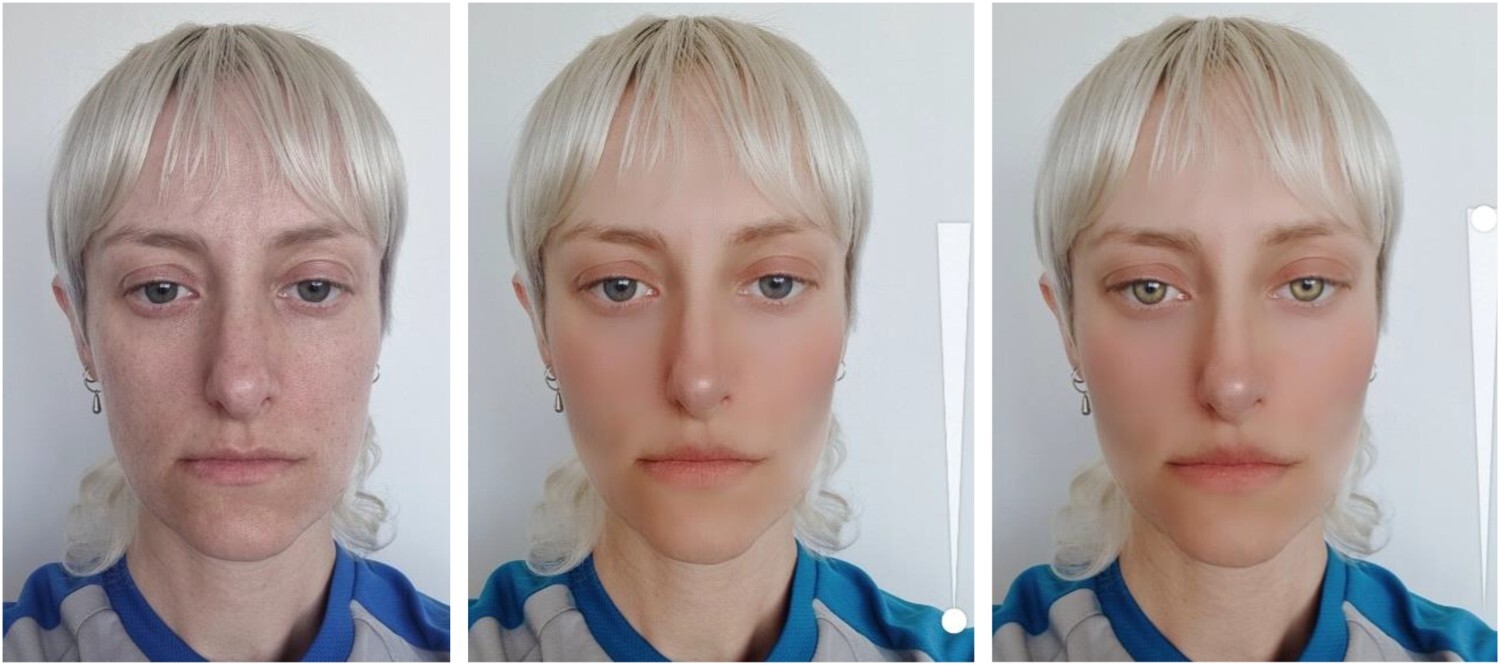New research finds Instagram promotes white appearances, cultural appropriation and plastic surgery via filters

New research finds Instagram filters promote white beauty standards, selective cultural appropriation and allow users to ‘try on’ risky surgical procedures.
In summary
- Instagram filters promote white beauty standards, selective cultural appropriation and allow users to ‘try on’ risky surgical procedures.
- The Swinburne research shows women are looking towards the same limited beauty standards.
- The research quantifies a “digital beauty template” created by these Instagram filters.
New Swinburne research finds Instagram filters promote white beauty standards, selective cultural appropriation and allow users to ‘try on’ risky surgical procedures, in potentially harmful ways.
Swinburne social media and augmented reality (AR) filter expert Lauren A. Miller looked at 225 beautifying Instagram filters and found that women were looking towards the same limited beauty standards, leaving little room for individual beauty and self-expression.
“The data reveals a template for beauty that is highly unattainable – certain ‘ethnic’ features are selectively appropriated while others are erased, producing a filtered appearance that is ambiguously ‘exotic’ but ultimately, underscored by its proximity to whiteness.”
The research found the ‘doe-eyed’ ideal popular in early filters has been replaced by the racialised ‘fox eye’ shape – a controversial social media trend that is considered cultural appropriation by many. Eye colour lightening was also common, further reinforcing limited and Eurocentric beauty ideals.
The research quantifies a “digital beauty template” created by these Instagram filters – a dominant style of beauty that has come to dictate beauty trends both on and offline for the past several years.
In particular, interactive sliders provided autonomy over the size of facial features, suggesting that filters may serve as an effective try on tool for cosmetic surgery and injectables.
“This beauty template is one that smooths skin and almost always plumps lips and shrinks noses,” Miller says.
“The use of ‘sliders’ are particularly insidious in their ability to allow the user to ‘try on’ certain procedures,” they say. “The slider tool rebrands cosmetic surgery as fun and without risk – we see this reflected in the continued casualisation of injectables like lip fillers and the increasingly lower ages of patients.”
Miller says this research is a significant milestone in quantifying facial feature beautification, something that is difficult to do in research due to the fast-paced nature of online tools.
These challenges are being further exacerbated by Meta’s decision to remove the vast majority of filters from their platforms by late 2025. Miller says the removal of most filters by Instagram does not mean that filtering (and editing) will stop, but instead become further obscured and difficult to identify as users go off-app to edit.
“These results quantify the beauty ideal that has been discussed by the media, often referred to as ‘Instagram face’. However, further support is required to help young people navigate the increasing availability and impact of instantly beautifying technologies.”
-
Media Enquiries
Related articles
-

- Science
If quantum computing is answering unknowable questions, how do we know they’re right?
A new Swinburne study is tackling the paradox - if quantum computing is answering unknowable questions, how do we know they’re right?
Tuesday 16 September 2025 -

- Technology
World first study of young adults’ brain activity shows TV and gaming boosts focus, while social media hinders it
A world-first Swinburne-led study into young adults’ brain activity has found that TV and gaming are associated with increased focus, while social media is associated with decreased focus.
Thursday 07 August 2025 -

- Science
How to make metals from Martian dirt
Swinburne and CSIRO researchers have successfully made iron under Mars-like conditions. This is how they did it.
Tuesday 26 August 2025 -

- Technology
- Science
Five surprising ways quantum is changing the world in areas you wouldn’t expect
As the world celebrates the Year of Quantum, here’s five unexpected ways quantum will change the way we operate, explained by Swinburne experts.
Thursday 07 August 2025 -

- Technology
New research finds Instagram promotes white appearances, cultural appropriation and plastic surgery via filters
New research finds Instagram filters promote white beauty standards, selective cultural appropriation and allow users to ‘try on’ risky surgical procedures.
Thursday 24 July 2025

